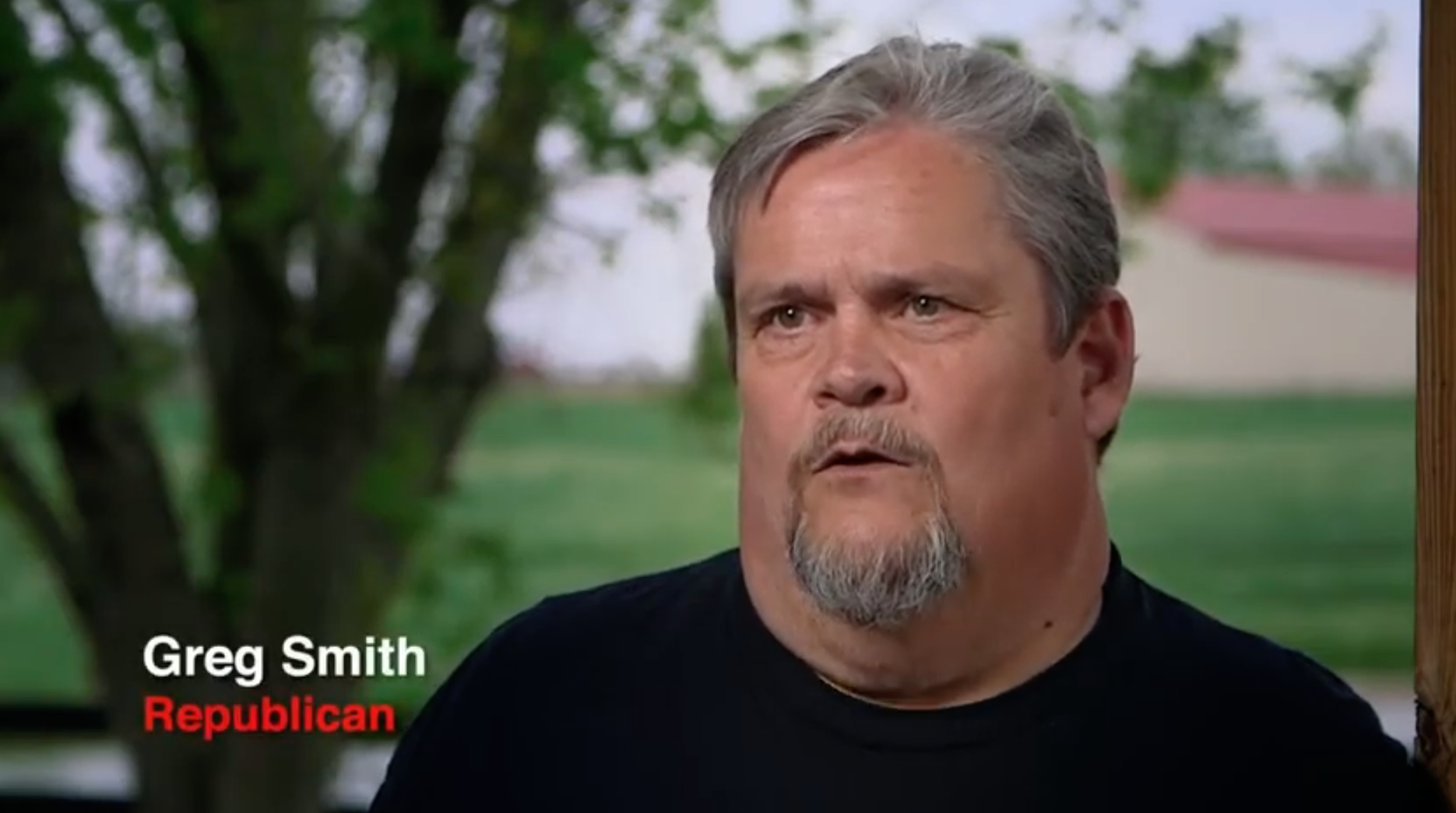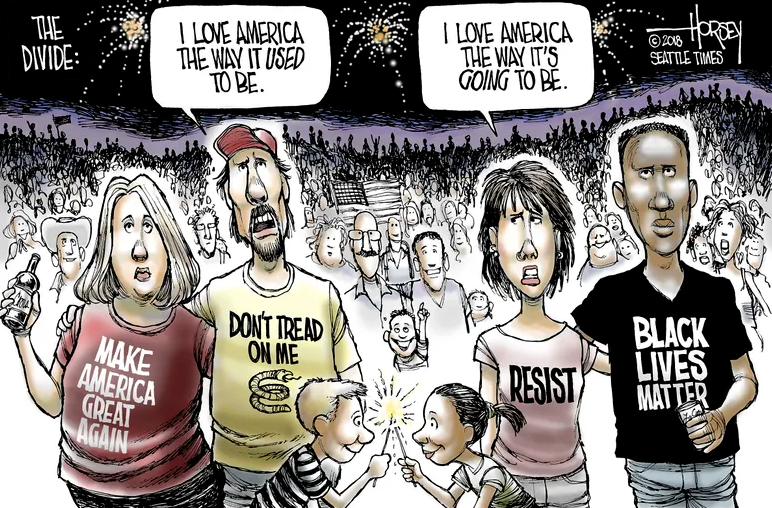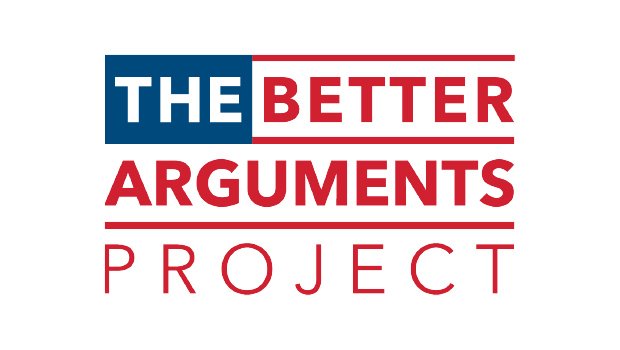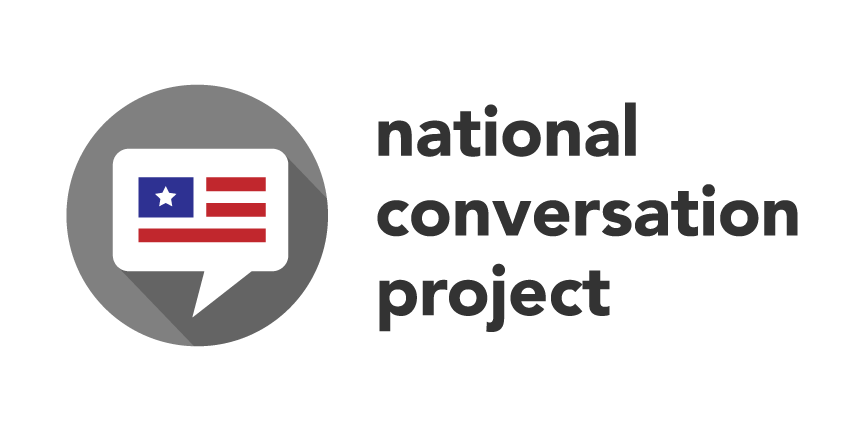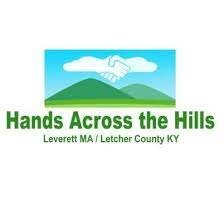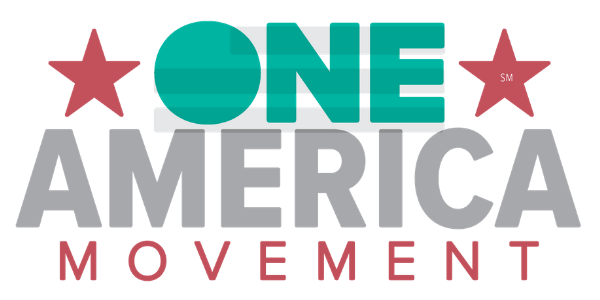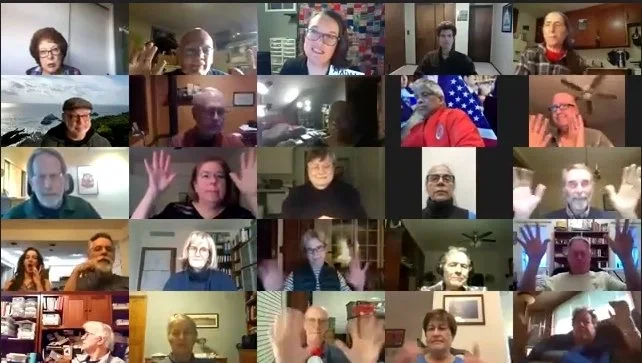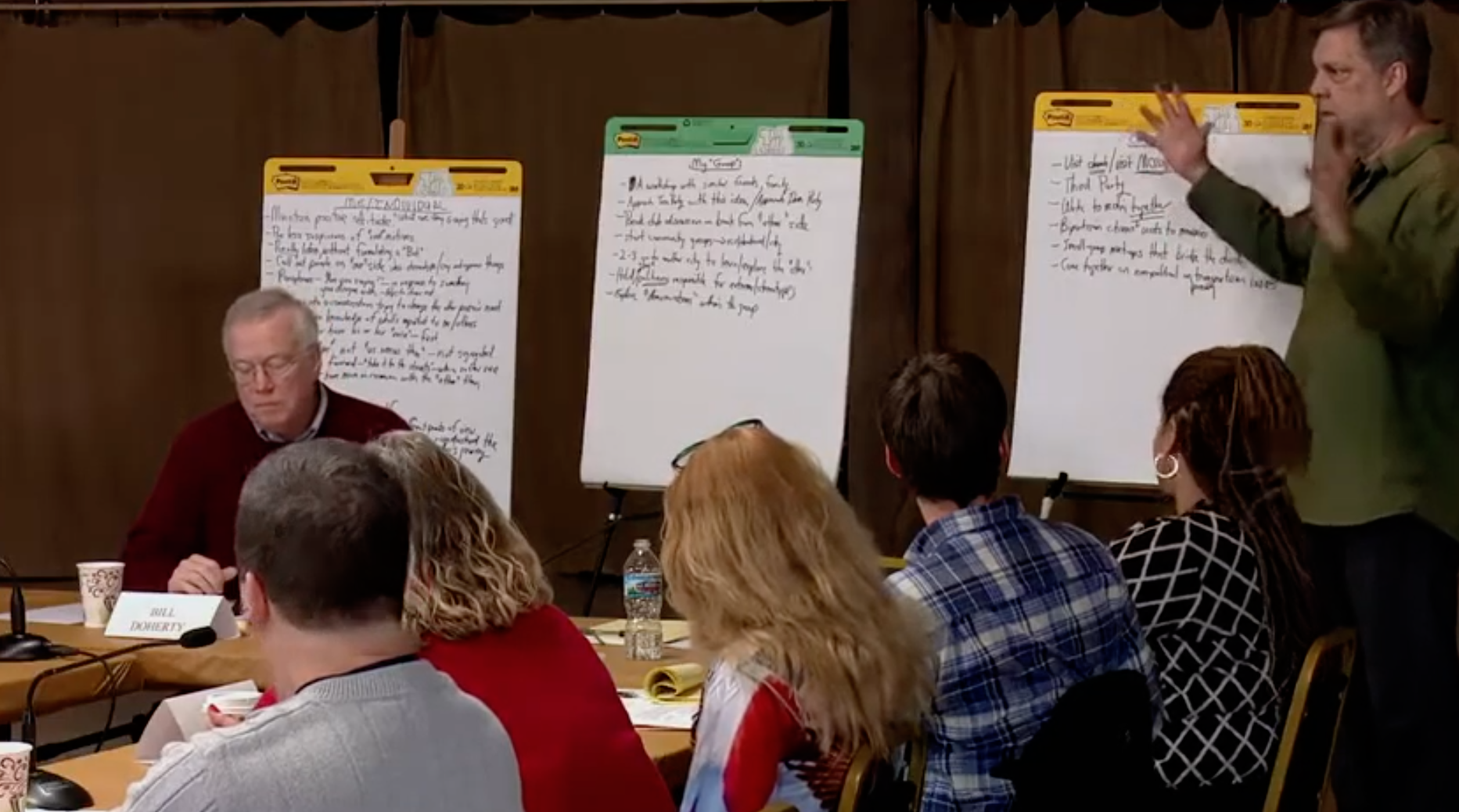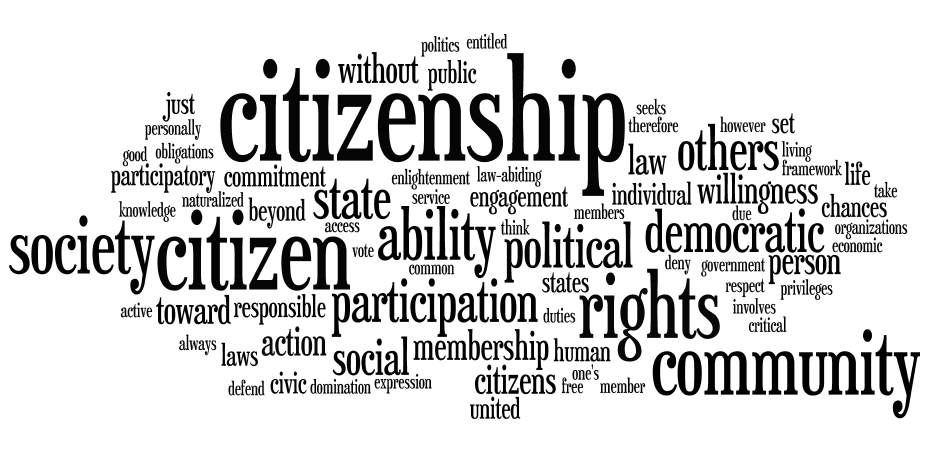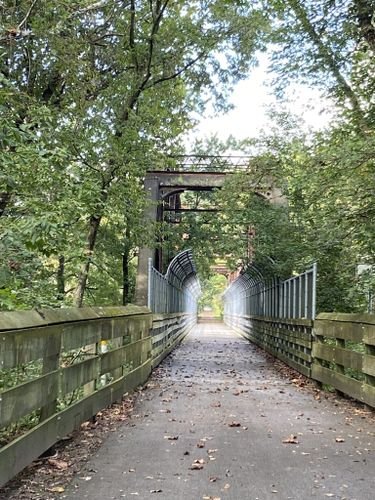BRIDGING AMERICA'S GREAT DIVIDE
SOUTH LEBANON, OH, APRIL 2017 — On a bright spring morning, the foul waters of 2016 were still swelling when twenty-one people — ten Red, eleven Blue — gathered for a workshop in this hardscrabble town.
They came to talk, to argue. They came to see whether they might “just maybe find common ground.” And they came because they were fed up with the raging politics that pitted neighbor against neighbor and family against family.
“I’ve had the door slammed in my face,” said Andie Moon, a graying Democrat. “I’ve had people say very rude things. . . We are so far apart.”
Republican Greg Smith agreed. “Sometimes to speak to an atheist, or a person who’s not conservative or has the same beliefs as me. . . I’ll be honest with you, right now I kind of feel afraid to open my mouth.”
From this first experiment in empathy, Braver Angels has grown into a nationwide bridge across a divided America. You know the divide. You see it nightly.
— NBC News: 80% of partisans believe that the other party “poses a threat that if not stopped will destroy America as we know it."
— 61 percent of Americans worry about “a second Civil War.”
— Nearly half say the country should be split in two, red and blue.
— And one thing we agree on — 86 percent are “exhausted by the divisions in America.”
We, the people, might sit back and bicker. We might call names. We might blame social media, politicians, extremists, the Russians. . . Or we could start building bridges.
Braver Angels, now with 6,000 members and chapters in all fifty states, is America’s largest bi-partisan group seeking to heal a riven America. “Good luck with that,” you might sneer, but these angels are not alone. Since 2017, others have joined in, reached out. They include:
America Indivisible, America in One Room, The Better Arguments Project, The Bridge Alliance, The Civil Conversations Project, The Center for Courage and Renewal, Hands Across the Hills, The National Conversations Project, The One America Movement, Open Mind, The American Listening Project, Left/Right/Center. . . The list goes on.
Can it work? When one party says “protest,” and the other says “riot?” When, as historian Jill Lepore notes, one party sees “abortion as murder and guns as freedom,” the other believes “guns mean murder and abortion is freedom?”
This much we can agree on, Braver Angels suggests. The “conversation of democracy” demands that we “look for common ground where it exists, and if possible, find ways to work together. We believe that all of us have blind spots and none of us are not worth talking to.”
Within weeks of its first workshop in Ohio, Braver Angels hit the divide running. Word spread on NPR and other media. Bus tours took Braver Angels workshops on the road. Seed money and volunteers came forth. Blueprints were drawn.
Today, Braver Angels has a dozen programs, each bi-partisan, each bringing people together. Not “to compromise or convert,” co-founder David Blankenhorn said, just “to see one another not as stereotypes but as neighbors in a country they share.”
Braver Angels now hosts college debates, Zoom debates, an online book club and film club, an Angels of Color Caucus, a We, the People Project for working class Americans, hundreds of 1:1 conversations across the great divide, plus workshops bridging gaps created by age, race, politics, and rural/urban divides.
All follow the Braver Angels Way: “We state ours views freely and fully, without fear. We welcome opportunities to engage with those with whom we disagree. We treat people who disagree with us with honesty and respect.”
There is more at stake here than family and friendship. “When politicians start talking about large groups of their fellow Americans as 'enemies,'” journalist Molly Ivins wrote, “it's time for a quiet stir of alertness. Polarizing people is a good way to win an election, and also a good way to wreck a country.”
But let’s get real. Meeting for a workshop or a weekend, Red and Blue do not magically blend into Purple. Bridge building is hard and there are few Kumbaya moments.
Fueled by the Dividers among us — politicians and cable news pundits, social media trolls and other monsters — polarization has increased since 2017. Name calling and middle school style bickering flourish. But that doesn’t mean you have to join the fight club. Yes, You.
Because in the coming weeks, Braver Angels invites you to a dozen events ranging from online debates (“Is Forgiving Student Debt a Good Idea?”) to assorted workshops: a rural/urban workshop in West Virginia, a “Skills for Bridging the Divide” workshop in Oregon, a “Families and Politics” workshop in New Jersey. Also upcoming: an online book discussion, and ongoing conferences, “Walk a Mile in my News,” “Politics in the Family,” “Debriefing the Midterm Elections. . .”
Back in South Lebanon, folks are still talking about that workshop in 2017. No participants switched parties, none changed their minds. But neighbors are (mostly) neighbors again.
“If more people would have this experience,” Andie Moon said, “I think maybe our country could come back together, and pull together as one, and learn to share and understand it’s okay to have opposing ideas. It’s okay to be different.”
Greg Smith agreed: “This thing that we did this weekend should not stop. This should go on to the next county, the next state, to the next city and out in the country and down every highway. . .”



